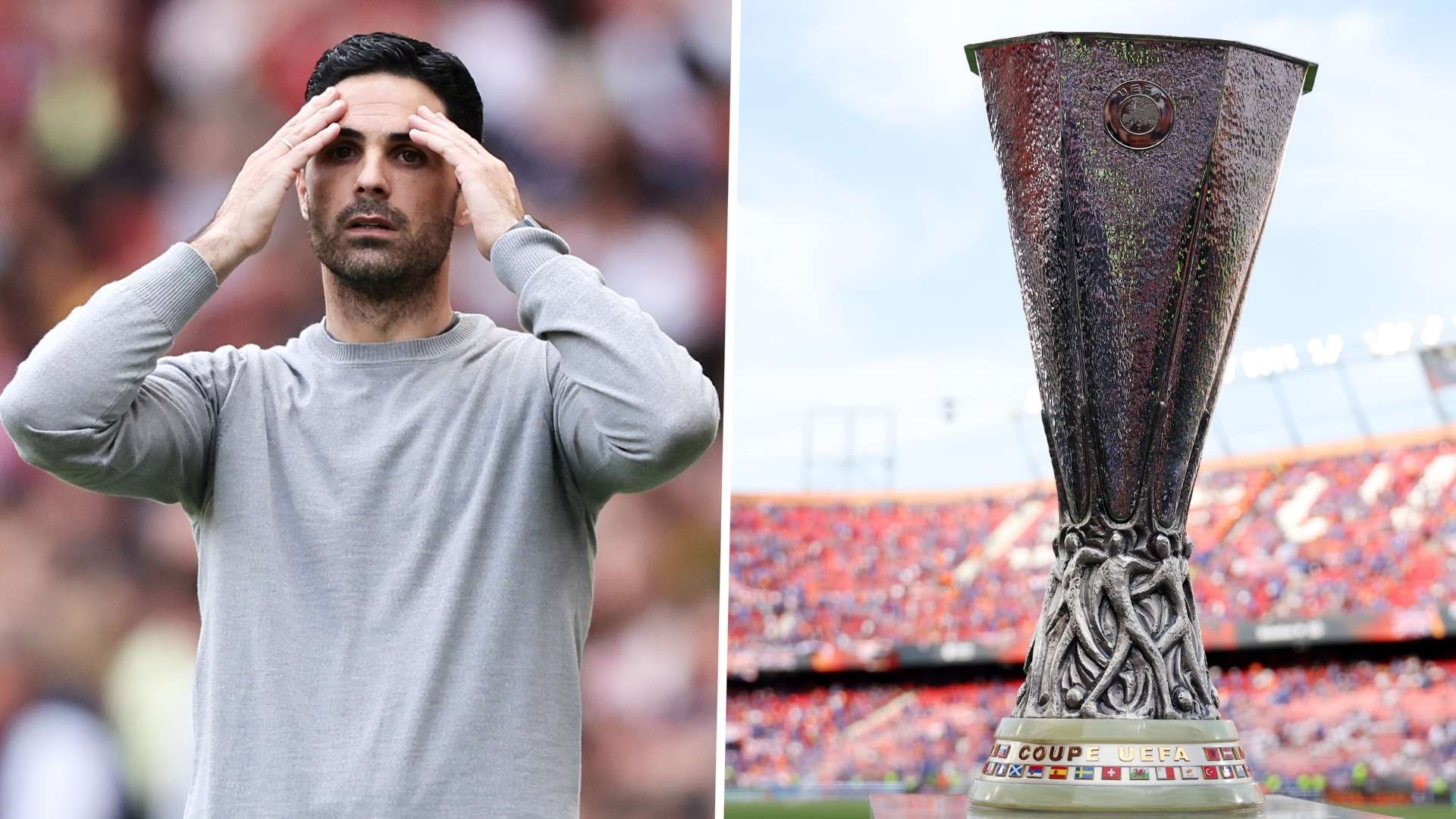Arsenal are back in Europe – but not the competition they wanted.
It looked for a long time like they were going to end their five-year wait for Champions League football, but they fell short right at the death.
Costly defeats to Tottenham and Newcastle right at the end of the season meant it was Spurs who sneaked into the top four, with Arsenal having to settle for a fifth-placed finish in the Premier League.
So, it will be the Europa League next season for Mikel Arteta’s men, which obviously feels like a massive let-down for fans excited by the prospect of seeing their side mixing it with the continent's top teams again.
However, could this actually be a good thing for the Gunners?
Next Match
Below, GOAL takes a look at what Europa League football could mean for Arsenal.
The pros
There are undoubtedly some plus points from Arsenal having a season of Europa League football to plan for.
Given the amount of players who have been allowed to leave in recents seasons, Mikel Arteta has a small senior squad to work with.
Even with a few additions this summer, the Champions League would have placed a lot of demands on a relatively shallow pool of players, as Arteta would have had little chance to rotate regularly, given the high-class nature of the opposition.
But the lower quality of teams in the Europa League group stages should allow Arteta a bit more flexibility in this regard.
The Gunners boss could give some game time to youngsters such Charlie Patino and Folarin Balogun, should the club decide against sending them out on loan for the first half of the 2022-23 campaign.
William Saliba could also be a major beneficiary, as the competition will give him a good opportunity to get regular game time if Arteta goes with Ben White and Gabriel Maghales as his first choice centre-backs in the Premier League.

Having more opportunity to mix things up in the Europa League should give Arteta a better chance of keeping some of his key players fresh for Premier League games at the weekend.
Another plus point for Arsenal is they actually stand a good chance of winning the Europa League.
Internally, the target at the start of the 2021-22 season was to secure passage back into Europe’s second-tier competition following back-to-back eighth placed finishes in the Premier League.
Qualifying for the Champions League would have been a huge and welcome boost, but would have come as a massive surprise, given the project that Arsenal are embarking on under Arteta hasn't quite reached that stage.
So, a season in the Europa League could give Arsenal a valuable extra year to continue to build slowly ahead of a possible return to Europe’s top table in 2022-23.
Being in the Europa League also offers another route back into the Champions League, with the winners automatically securing qualification for next season.
The cons
A season in the Europa League will bring in some much-needed revenue, but the money on offer is nothing like what can be amassed in the Champions League.
“The rough rule of thumb is for every euro earned in the Europa League, it works out at around €5 in the Champions League,” Kieran Maguire of the Price of Football told GOAL.
That lost revenue will undoubtedly have an impact on Arsenal’s summer transfer business.
Whilst they are still expected to be busy during the off-season, they will not be able to be anywhere near as aggressive as they could have been had they qualified for Europe’s premier club competition.
It will also make things more difficult when it comes to attracting the club’s top targets during the transfer window.

Arsenal are hopeful they will still be able to convince the likes of Manchester City striker Gabriel Jesus to join, but there is no doubt that securing Champions League qualification would have made a move to the Emirates a far more attractive proposition to top players.
They would have been able to offer more money to convince clubs to sell and they would have been able to offer higher wages to convince their targets to move.
Whilst the view of the Europa League has improved in recent years, it still has nothing on the Champions League in terms of prestige.
Arsenal’s standing across Europe has certainly dipped in recent years and a return to the Champions League would have certainly helped with that.
Having to play on Thursday nights will also not be beneficial to Arsenal’s Premier League campaign, as has been proven time and again in recent seasons.
Attendances will also be hit, especially in the group stages, where it will prove very difficult to fill the Emirates when Arteta’s side are taking on some of Europe's lesser-known clubs.
Again, that will make a big impact on Arsenal's finances.
The verdict
Europa League football is far from a disaster for Arsenal and Arteta’s side will quite rightly be viewed as one of the favourites for the competition.
It certainly has its plus points and the game time the group stages will give to some of the squad players shouldn’t be underestimated.
But despite the clear benefits that are on offer, there is simply no substitute to being in the Champions League.
Yes, Arsenal may have been considered ahead of schedule had they qualified, and thus not fully ready for the challenge it presents, but that shouldn’t really come into the equation when trying to weigh up the pros and cons.
The fact is that Arsenal are going to be far worse off by playing in the Europa League.
The money that would have been generated by a good run in the Champions League would have been transformative to the club and there’s no doubt that missing out will have an impact on the transfer business they wanted to do this summer.
They might still be able to land top targets Jesus and Youri Tielemans, but it's expected Arsenal will miss out on two potential new additions this summer due to a lack of cash that would have been avoided had they finished in the top four.
Returning to Europe’s top competition would also have been a clear message to the football world that the club was on the right path again after the recent decline.
Again, some will argue that Arsenal wouldn’t have been ready to compete with Europe’s top teams, but that is a very defeatist attitude because once you are in a competition, you always have a chance.
Look how close Villarreal came to reaching the Champions League final last season. They proved that anything can happen.
So, while Arsenal shouldn’t scoff at a season in the Europa League, any suggestion that missing out on the top four could actually be a blessing in disguise can’t really be taken seriously.
Tellingly, if you ask Arteta, he would tell you the same thing.


